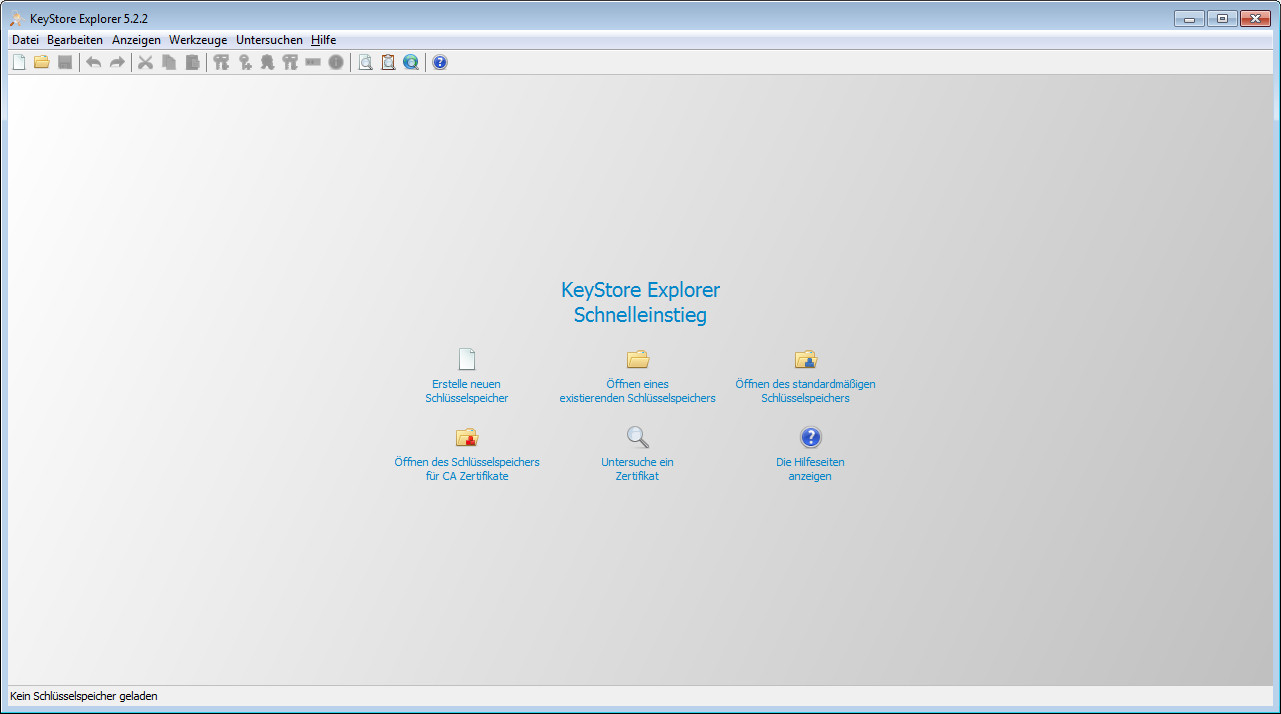
- #Keystore explorer creating jks driver#
- #Keystore explorer creating jks full#
- #Keystore explorer creating jks verification#
However, this is only intended to secure the connection for the initial configuration of the system. The system is delivered with a private certificate. Since this usually deters users, obtaining and using a public certificate is strongly recommended.
#Keystore explorer creating jks verification#
When using a private certificate, on the other hand, browsers usually display a warning asking for verification and confirmation of the trust relationship. Since a user's browser usually already trusts the public certification authority, the confirmed certificate of your domain (as long as it is valid) is also considered trustworthy. the certification authority or certificate provider, checks the ownership of your domain and confirms this in the certificate. Compared to self-created SSL certificates, however, public SSL certificates offer the advantage that the issuer of the certificate, i.e. These offer the same level of security in terms of encryption.
#Keystore explorer creating jks driver#
Video of configuring JKS Application driver here:


This option keeps the existing certificate available during the renewal process and simplifies management of the applications that use the key/certificate referenced by the alias.Īlgorithm used to generate the key for the current certificate. Reuses the alias that is assigned to the key/certificate in the keystore when the certificate is renewed. The credential required to access the private key file for certificate renewal.Ĭreates a new keystore file, if one does not already exist.ĭeletes the existing keystore and creates a new one.
#Keystore explorer creating jks full#
Available types:Ī full path includes the path and the filename. You must select the keystore type supported by the platforms and applications that consume the keystore’s certificates. Type of store managed via the current JKS Application object. The store type determines the key file format. The store type determines the key file format. Trust Protection Platform supports the following versions of the Java Keytool utility: Version of the Java Keytool utility you are using to manage keystores. If left empty Venafi will generate JKS keystore. Please see the following article covering Creation of Device objects and the generic application object settings Info: Creating An Application Objectįollowing covers the Java Keystore settings on the JKS Application object.įull path name of the Java keytool utility. For detailed prerequisites please see product documentation.

Provisioning a JSK keystore does not require keytool on target system. With Venafi Trust Protection Platform we can automate the managing of Java Keystores for any application that utilizes a JKS keystore if one of the supported provisioning method are available. The Java Keystore (JKS) is a library that can be integrated with the JKS-integrated server platforms such as: This article covers the JSK Application provisioning driver configuration. Venafi Trust Protection Platform (TPP) we can automate the managing of Java Keystores. Venafi Trust Protection Platform 16.2 and up


 0 kommentar(er)
0 kommentar(er)
